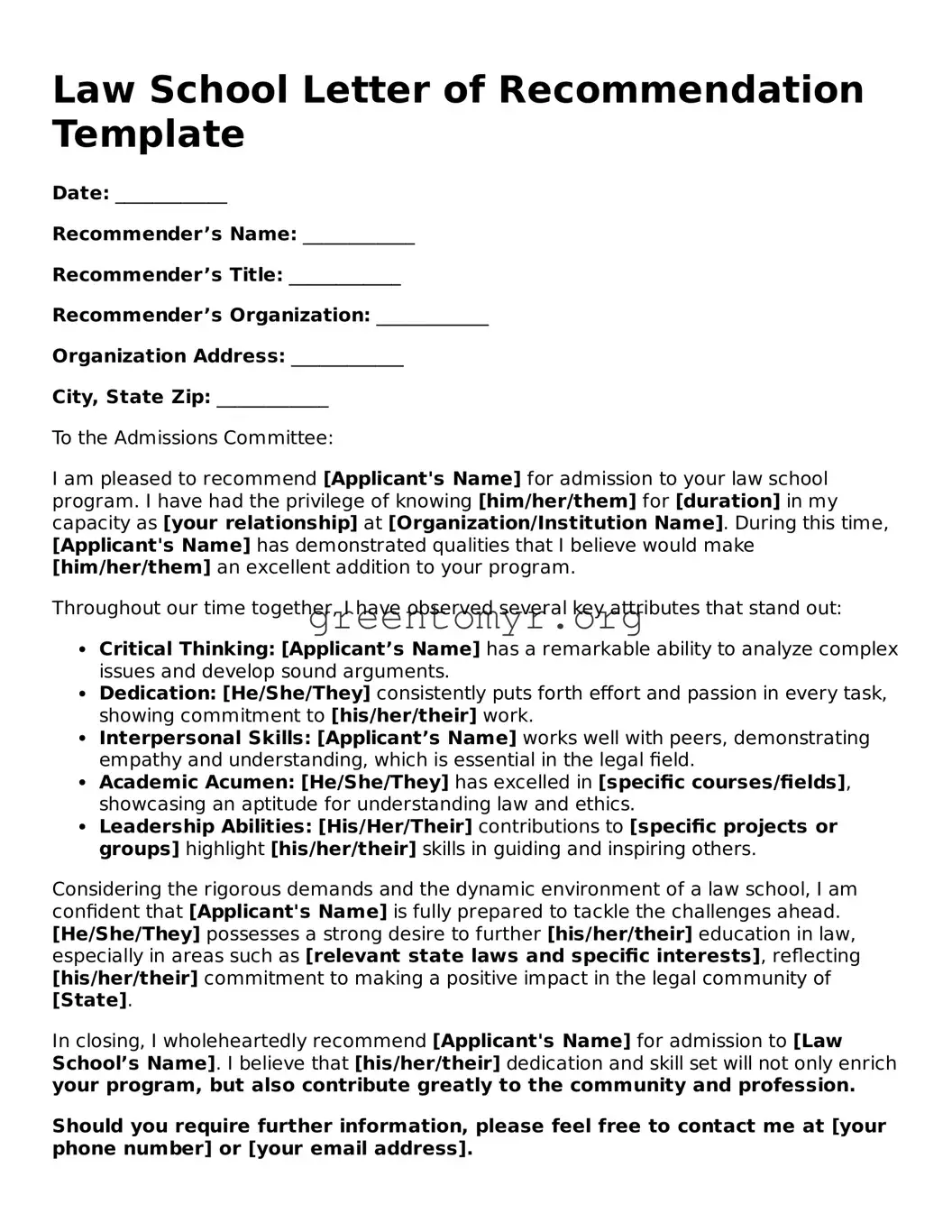Law School Letter of Recommendation Template
Date: ____________
Recommender’s Name: ____________
Recommender’s Title: ____________
Recommender’s Organization: ____________
Organization Address: ____________
City, State Zip: ____________
To the Admissions Committee:
I am pleased to recommend [Applicant's Name] for admission to your law school program. I have had the privilege of knowing [him/her/them] for [duration] in my capacity as [your relationship] at [Organization/Institution Name]. During this time, [Applicant's Name] has demonstrated qualities that I believe would make [him/her/them] an excellent addition to your program.
Throughout our time together, I have observed several key attributes that stand out:
- Critical Thinking: [Applicant’s Name] has a remarkable ability to analyze complex issues and develop sound arguments.
- Dedication: [He/She/They] consistently puts forth effort and passion in every task, showing commitment to [his/her/their] work.
- Interpersonal Skills: [Applicant’s Name] works well with peers, demonstrating empathy and understanding, which is essential in the legal field.
- Academic Acumen: [He/She/They] has excelled in [specific courses/fields], showcasing an aptitude for understanding law and ethics.
- Leadership Abilities: [His/Her/Their] contributions to [specific projects or groups] highlight [his/her/their] skills in guiding and inspiring others.
Considering the rigorous demands and the dynamic environment of a law school, I am confident that [Applicant's Name] is fully prepared to tackle the challenges ahead. [He/She/They] possesses a strong desire to further [his/her/their] education in law, especially in areas such as [relevant state laws and specific interests], reflecting [his/her/their] commitment to making a positive impact in the legal community of [State].
In closing, I wholeheartedly recommend [Applicant's Name] for admission to [Law School’s Name]. I believe that [his/her/their] dedication and skill set will not only enrich your program, but also contribute greatly to the community and profession.
Should you require further information, please feel free to contact me at [your phone number] or [your email address].
Sincerely,
[Recommender’s Name]
[Recommender's Title]
